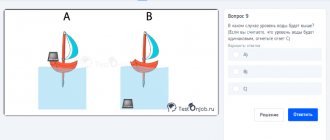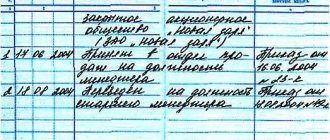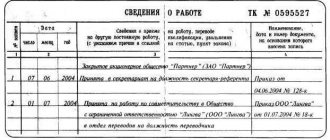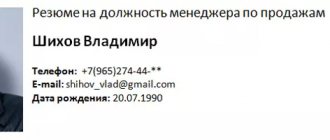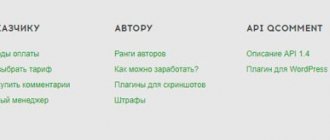Each position and different work tasks require employees with certain business or personal qualities. To identify the level of qualifications, personal characteristics, and determine how suitable the applicant is for this job, interviews of various types are conducted. They differ in the way they are carried out, the methods used, and the psychological techniques used. All types of interviews have one goal - to evaluate a candidate for a specific job or team.
Types of interviews
The conversation when applying for a vacancy in Kazakhstan or any other country can be group or individual. Moreover, there are options when there are several applicants, and one HR specialist interviews them at the same time. There are also the opposite situations: there is only one candidate, but a group consisting of a human resources manager, a psychologist, a future immediate supervisor or foreman, etc., checks him. The third option is “group against group,” that is, there are several people on both sides, but this type is rarely used. It can be carried out at the preliminary screening stage.
Techniques
The following interview methods are available:
British
It is based on a personal conversation with the candidate . The HR manager is interested in the person’s biography, family traditions, and education.
German
Before coming for an interview, the candidate needs to prepare documents. A mandatory condition includes providing recommendations from specialists , managers, scientists and other significant personalities.
The HR manager checks the correctness of the documents, which is “admission” to the interview.
American
The key condition for conducting an interview is an informal atmosphere. The HR manager evaluates his intellectual and creative potential , and also conducts psychological tests.
Chinese
To get an interview, candidates must write several essays and pass exams confirming their literacy and education.
The next stage is an essay on the topic of future work.
After this, an interview is conducted.
In this case, applicants' grades obtained in exams are taken into account.
Let's move on to interview methods.
Staged interviews
Before an invitation to a conversation, personnel officers carry out preliminary work: review resumes, study submitted documents, characteristics, reviews. After this, the applicant is invited to a meeting. It may be the only one after which a decision is made on the candidate’s suitability for the vacancy. Both HR and the manager can conduct such an interview.
The second option is stage-by-stage selection. First, a HR service employee or HR provider meets with the applicant to assess the suitability of qualifications and overall adequacy. This is a screening stage, after which those eligible are invited to a second interview, where they will be tested in more detail. There may be several subsequent stages, especially if you need to identify the most suitable candidate and select him from several worthy applicants.
Serial interview
A serial job interview means multiple interviews with different employees at a company on the same day. Applicants for particularly responsible positions are assessed by different people, starting with a personnel department employee and ending with the director of the enterprise. These results are then summarized and analyzed, after which a decision is made to approve or reject the candidacy.
Such an interview is tedious for the applicant, as it requires spending a lot of time waiting for one or another employee, as well as answering repeated questions several times. It is important for the candidate not to show fatigue or boredom and try to maintain interest during each interview.
Techniques for conducting job interviews
There are 4 basic approaches in the world:
- British. This is a traditional interview during which issues of biography, qualifications, training, moral or business qualities are clarified.
- American. Interviews are conducted in a variety of forms: tests, interviews, competitions, creative tasks. The goal is to find out creative or work potential, to understand how well a person can work in a team, act in stressful situations, and whether he knows how to come out of difficult situations in an unconventional way.
- Chinese. Conducted in writing. The candidate takes an exam in his profession, and also writes about his biography and ideas about the upcoming work. The written format is believed to assess overall literacy and competence.
- German. Interview with preliminary in-depth study of documents. Candidates submit documents on education, qualifications in accordance with the list from the employer, characteristics and reviews of their work, letters of recommendation.
In Kazakhstan, there is no clear priority of methodology: they all use them, sometimes combining, for example, German documentary assessment with a creative American approach.
Advantages and disadvantages
It is generally accepted that this approach to personnel search saves time.
The statement is very controversial, given that after the group interview they usually conduct an individual interview. This is just one of the selection stages, most often.
You won’t be able to gain a lot of time; the employer needs to understand this.
There is no talk of any savings in the case of the applicant. One interview can take 2-3 hours.
The candidate will have to concentrate, behave in accordance with business etiquette, and pretend that he is not tired or annoyed by the monotonous answers of other applicants. His duty is to be perfect in spite of everything, including time.
If the applicant takes the wrong step, disconnects from the general conversation, or begins to show anxiety, the recruiter will notice this. This is the first advantage of the method. It allows you to identify closed, aggressive and impatient individuals.
However, this is only possible if the company representative has ingenuity and observation.
A false sense of security is enemy #1. You cannot relax during an interview, citing the fact that the recruiter is communicating with another person.
It is impossible to fully evaluate a person in such conditions; such a goal is not set. Usually one criterion is chosen. For example, if the position involves constant communication with clients, communication skills are put at the forefront. They are being processed.
As a result, the inspector receives comprehensive information, but only in one direction. For a candidate, a group interview is beneficial. He will be able to get to know his competitors.
He will know:
- how he differs from others in a good and bad sense;
- what is the level of the opponents;
- how experienced specialists present themselves;
- what to work on, what direction to move in.
Types of job interviews by content
There are two types of interviews in terms of content: biographical and situational. The first helps to get to know a potential employee, find out his personal and work qualities, identify his level of education and qualifications, learn about his skills and moral principles. And based on the received “portrait”, make a decision about whether such a person is suitable for the vacancy and for performing the assigned tasks, and whether he will join the team.
The second option - a situational interview - means that the applicant is given some kind of task that he must solve or from which he must overcome. As he tries to cope with the situation, his abilities and skills are assessed. The ability to cope with the situation and find solutions for it determines whether such a person will be useful for the company.
Free interview
A free interview is like an acquaintance between two people, with the applicant talking more than the employer. This is how the employer most informally tries to understand whether the future employee will be able to get used to the team. Such an interview is carried out in situations where a large number of applicants are not expected for an open position or where selection criteria are minimal.
An example of an interview in the form of a free conversation is a request to a candidate to talk about his life. The applicant must describe family, education, work experience, hobbies and plans for the future. It is difficult to prepare for such an interview in advance, because the employer asks any questions that came to his mind while the candidate was speaking. But you can think through a brief and interesting summary of your biography in advance. When talking about yourself, you should try not to deviate from the main topic of the conversation, otherwise the employer will only be able to give an informal assessment, without understanding the candidate’s professional skills.
Types of interviews when recruiting personnel
Based on the method of implementation, I will highlight the following varieties:
Structured
There is a list of questions that are asked to the candidate. They can be biographical or situational. Sometimes it looks like a survey. A person is asked simple questions about his life, education, work, outlook on life. By what and how he answers, you can get a general impression. Sometimes questions can take a job candidate by surprise and seem inappropriate or unnecessary. In fact, each such question is reasonable, has its own purpose, and is built into the overall structure of the interview. Companies that provide employment assistance recommend that candidates not be surprised by such questions and not show their confusion when doing so.
Stressful
It can be carried out in the form of an interview or a creative task, but during the conduct the applicant is placed in a stressful situation. For example, he is asked uncomfortable and provocative questions, constantly distracted from completing a task, talked in an unusual environment, in the presence of a large number of strangers, or under specially created force majeure conditions. The purpose of such an interview is to find out stress resistance, the ability to make non-standard decisions, and work in difficult situations. When hiring in Almaty, stress interviews are carried out, for example, for applicants for positions that involve constant communication with people: bank employees, tax officials, insurance companies, etc. Stress interviews help to find employees for whom personal qualities are most important , not a qualification.
Projective
The candidate is given some kind of task, one way or another related to his work. The situation may be real or fictitious. The candidate is asked how he would solve this problem, what he would do and what he would not do, what innovations he would propose, how he would correct the problem that arose. Perhaps the person has experience in solving similar problems, and he will talk about his real actions. Or he will simply approach this task creatively.
Also, when analyzing the situation, the applicant may be asked to evaluate the actions of other people in this project. Interviews in the form of case solutions are increasingly used when searching for work in Almaty and Kazakhstan. They allow you to find effective managers, people who find solutions even for very confusing and complex problems.
Biographical interview
A biographical interview is based on a discussion of facts from the candidate’s life, such as experience, previous jobs, education, and skills. During such an interview, the following questions are usually asked:
- What university did you graduate from?
- Why did you choose this particular educational institution?
- What attracted you to your chosen specialty?
- What was the reason for leaving your previous job?
- What would you change in your life if you could go back a few years?
In order not to get confused during an interview, you need to think through the best answers in advance, that is, be able to clearly talk about your biography. If you have work experience or special skills in the area of the vacant position, you should focus on this and talk in more detail about your knowledge.
Types of job interviews according to assessment method
In a traditional face-to-face interview with a potential manager or person responsible for recruiting, the main assessment is the impression that the employer's representative has of the applicant. But there are other ways that complement the personal attitude:
- According to competencies. Competency scales are being developed. The applicant is asked questions or asked to perform some task, during which his education, experience, personal characteristics, stress resistance and other qualities can be assessed. Each scale is given a rating. Then the scores of different candidates are compared and the most suitable one is found.
- Technical. Only questions directly related to work activity are asked. Assess a set of skills. If the applicant can do what is required, has the necessary skills and knowledge, he is suitable for this position. This is a type of interview for positions for which real experience and skills are important.
What are interviews like?
Interviews are divided into several main types. Why does an applicant need to know what exactly his interview will be like? It's simple: each type has its own characteristics, assessment methodology and questions for candidates. If the candidate is familiar with the characteristic features of a particular type, then he will be able to prepare well in advance for a meeting with the employer. Let's look at the types of interviews and their features:
Details on how to pass an interview in English:
- structured interview. This type is the most popular among others. Its essence lies in the fact that the manager responsible for personnel selection will ask standard sequential questions. You certainly know the answers to them, because everything here is banal: “What is your education?”, “What position did you work in before?”, “Why did you quit?”, “What are your expectations from your future position?” and so on. Here, the manager’s main goal is to find out basic information from the applicant, as well as his level of qualifications. The employer will certainly verify the authenticity of the information provided by the applicant. The candidate will be assessed on how well he fits into the company's activities;
- situational interview (case interview). This type of interview involves the applicant's answers to a series of hypothetical questions asked by the manager. Simply put, the candidate is presented with a specific situation and asked to talk about what actions he will take in it. The employer has template answers to the questions asked of the applicant. The way the candidate responds is compared to a template. As for typical situations (they are also called cases), it is with the help of them that an employer can identify the professional and personal qualities of an applicant and draw up a characteristic portrait of him. The manager’s main goal is, based on the answers given during the case interview, to compare the pros and cons of a particular candidate for a vacant position and decide whether the company needs him;
- The interview is projective. Here the applicant must be prepared for quick and clear answers. The interview is conducted at a fast pace, thereby not allowing you to think carefully about the answer to the question. Result - the candidate answers what first came to mind.
Basically, during a projective interview, the applicant will have to give comments about the actions of third-party people who find themselves in a particular situation. The goal of the employer who uses this type of interview is to identify the behavior pattern and personal qualities of the applicant.
Examples of interview questions and answers:
Based on psychological indicators, it is common for a person to subconsciously put himself in the place of another person and use his own experience. A lot of information regarding the psychological appearance of the applicant can be found out by using a projective type of interview;
- behavioral or competency-based interview. This view is quite similar to the previous one. Here the applicant is also offered problem situations in which he must participate. But the main focus is still on real life experience. The candidate must talk about how he acted in solving the situation that arose and what actions he took. This clearly expresses his professional qualities and ability to independently solve sudden problems at work.
A big plus would be the applicant's experience. Assess the candidate’s level of professionalism using special scales or competencies. They represent a set of characteristics that a specialist must have: skills, personal qualities, knowledge, etc. Characteristics may vary; competencies are compiled at the discretion of the manager. It is quite difficult to list them all, because there are about a hundred competencies. But in a behavioral interview, the set usually consists of 15-20 scales.
This type of interview is most often used when choosing a manager. But it is also often used to select other specialists. Having selected successful resumes, the employer checks the accuracy of the information written in them during the interview;
- The interview is stressful. Here they will try in every possible way to provoke a conflict into the applicant. The candidate must be prepared for provocative questions. In this case, what is important is not so much the correct answer as the correct reaction to the question. Using this type of interview, the employer checks the candidate’s resistance to stress and his tendency to conflict;
- group interview. The name itself makes it clear that several candidates will be present at the interview at the same time. This type is used to save time, trying to reach as many applicants for an available vacancy as possible. In addition, during a group interview, you can see to a greater extent how friendly, sociable and affable the applicant is.
It should be noted that in a group interview there may be several candidates at one time, as well as several hiring managers. This contributes to a more objective assessment of candidates, thereby eliminating bias.
Group interview
Group interviews are justified if leadership and communication skills are important to a potential candidate - these are easiest to demonstrate during a group interview. Therefore, group interviews are often used to search for leadership positions and in the mass selection of specialties, where confidence, initiative and communication with a large audience are the most important skills: advertisers, PR specialists, sales managers, promoters, journalists, realtors, insurance and travel agents, call operators -centers.
Group interviews are meaningless for those specialists whose responsibilities do not include working with people, in stressful situations, and also do not need to show leadership qualities: accountants, engineers, IT specialists, analysts, editors - in a word, all those who quietly do their work in the office work.

